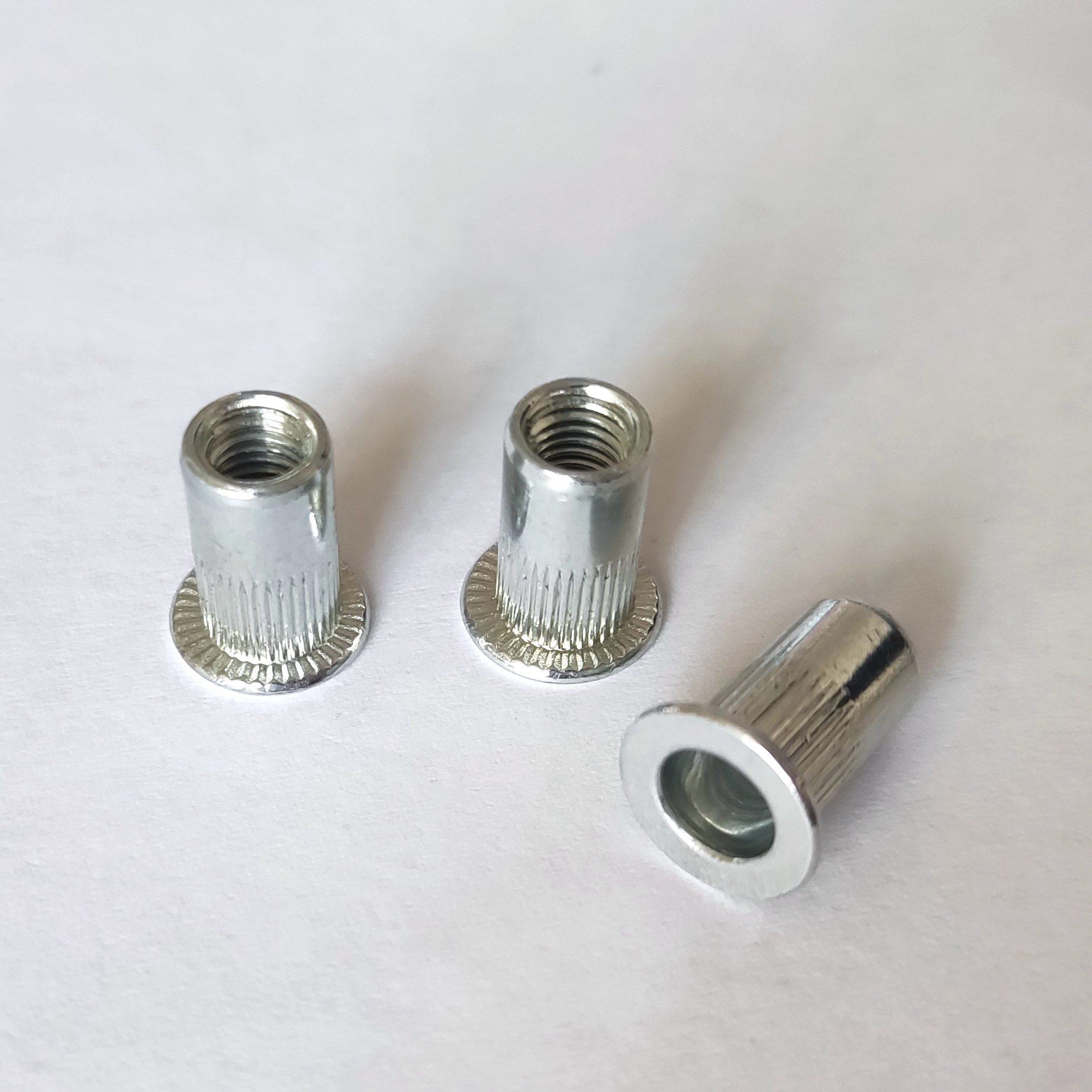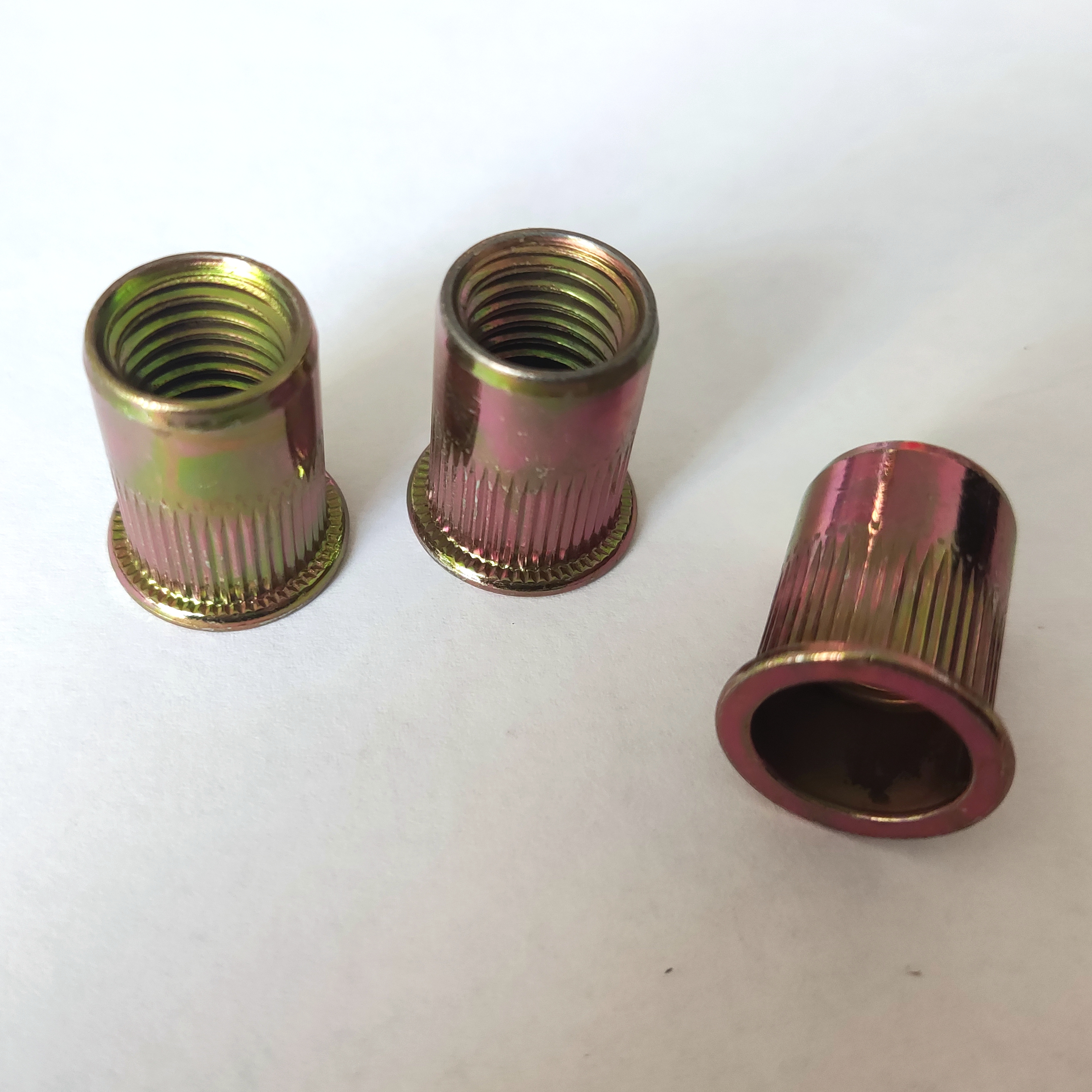Reduce Head Half Hex Rivet Nut
Rivet nuts are used in the fastening field of various metal sheet and pipe manufacturing industries. They are developed to solve the shortcomings of metal sheet and thin pipe welding nuts that are easy to melt and easy to slip when tapping internal threads. It does not need to tap internal threads and does not Welding nuts are required, the riveting is firm and efficient, and it is easy to use.
Rivet nuts are used in the fastening field of manufacturing industries such as various metal sheets and pipes, and are currently widely used in the assembly of electromechanical and light industrial products such as automobiles, aviation, railways, refrigeration, elevators, switches, instruments, furniture, and decoration. Developed to solve the shortcomings of metal sheets and thin tubes that weld nuts are easy to melt, and tapping internal threads is easy to slip. It does not need tapping internal threads, does not require welding nuts, riveting is firm, efficient, and easy to use.
The specifications of rivet nuts in the national standard are M3, M4, M5, M6, M8, M10, M12. In fact, it is recommended to use M5, M6 and M8, because if the thread is small, it can be directly tapped on the base material, and if the thread is large, the bolt The weight is greatly increased, and the connection strength of the rivet nut is limited, that is, the matching is not very reasonable. It can be seen from the above that rivet nuts can be widely used on aluminum alloy substrates of different thicknesses or steel plates with a thickness of 1-2.5mm. In particular, steel rivet nuts are more connected to aluminum alloy components, which eliminates the cumbersome work of embedding steel plates inside, and its manufacturability is significantly improved.
If the nut of a certain product needs to be installed on the outside, but the space inside is too small to allow the indenter of the riveting machine to enter for riveting and methods such as budding cannot meet the strength requirements, then both riveting and riveting are not feasible. Pull rivets must be used. It is suitable for the fastening field of plates and pipes (0.5MM-6MM) of various thicknesses. Using a pneumatic or manual riveting gun can be riveted at one time, which is convenient and firm; replaces the traditional welding nuts, and makes up for the shortcomings of thin metal plates, thin tubes that are easy to weld, and welding nuts that are not smooth.

